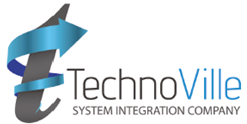THE KNOWLEDGE REVOLUTION & TECHNOLOGY knowledge revolution era The Growth in ICT Leverage Science And Technology Boosting Human Productivity Pakistan behind others in terms of innovation
A new knowledge revolution era in technology marks a paradigm shift in development and wealth creation models, by placing knowledge as the most strategic asset in the development balance sheet.
Rapid changes in technology and the introduction of disruptive new technologies are enabling and catalyzing massive increases in productivity and giving birth to entire new sectors of economic activity. Hello are likely to drive the future of development namely micro-electronics, computers, telecommunications, human-made materials, robotics, and biotechnology.
Specifically, the growth in ICT has shifted the world to a virtual space, particularly for the delivery of services, and has given birth to a new global operating model for businesses. While Pakistan has lagged behind regional peers in taking advantage of the new growth opportunities created in the technology enabled space, many of the foundational factors are in place now to seize the opportunity going forward.
The increased investment in higher education has created an opportunity to leverage science and technology for a knowledge economy—one in which even the most traditional sectors will register increases in productivity through the harnessing of knowledge and technology. The vision of a ‘knowledge economy’ cannot actualize without promoting quality education in Pakistan.
Education – both formal and informal – plays a vital role in economic and social development through boosting human productivity and social cohesion. Today, all nations are competing to build smart and quality human resource. In the past one of the missing links in the development strategy was a disconnect between the science and technology institutions and the productive sectors.
The Vision seeks to overcome this disconnect in order to encourage the identification of indigenous solutions to local problems. This will require revamping S&T organizations, especially those that may have become dormant. Possibilities of collaboration with private sector ‘Hi-tech’ companies to rejuvenate existing R&D setups and restructuring of ICT R&D funds to avoid duplicity will be explored.
Pakistan also lags behind others in terms of innovation and patents registered, which are the best-known measures of success in science and technology. A major thrust will be to put Pakistan on the innovation map of the world through focused research and development.
